Flowers are one of the most beautiful things in nature. They are also one of the most popular subjects for photographers. Many people enjoy taking pictures of flowers, but few know how to make them look their best. Get a list of some flowers that start with the letter W.
Flowers That Start With W – List Of Flowers That Name Starts With the Letter ‘W’
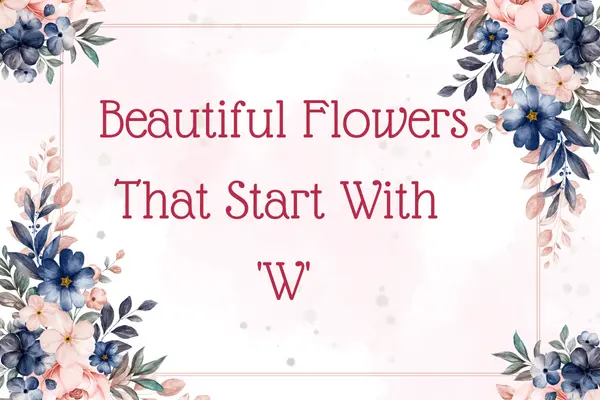
Wallflower
Wallflowers are a type of flowering plant. The name “wallflower” comes from the plant’s habit of growing up against walls and other vertical surfaces.
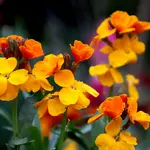
Wallflowers are part of the genus Erysimum, which contains about 250 species of plants. Most wallflowers are native to Europe, but some can be found in North America and Asia.
Wandflower
The Wandflower (or Gaura lindheimeri) is a beautiful, long–blooming flower that is native to North America.
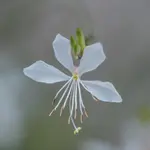
The flowers are white or pink and have long, thin petals that curl back at the tips. The plants can grow to be up to 4 feet tall and have a spread of 2–3 feet. They do best in full sun and well–drained soil.
Waterlily
The waterlily is a flowering plant that grows in freshwater habitats in temperate and tropical climates.
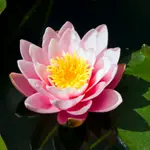
The waterlily has large, round leaves that float on the surface of the water, and its flowers emerge from the center of the leaf. The waterlily is a popular plant in aquaria and water gardens, and its flowers are used in floral arrangements.
Watsonia
Watsonia is a genus of flowering plants in the iris family, Iridaceae. It is native to southern Africa, from Cape Province south to KwaZulu–Natal, and west to Namibia and Botswana.
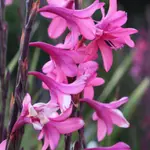
The genus is named for Sir William Watson, 1st Baronet (1715–1787), an English botanist and antiquary. Most species of Watsonia are perennials growing from corms. They have basal leaves and spikes of tubular flowers in shades of pink, orange, or red.
Wax Plant
The wax plant (Hoya carnosa) is a species of flowering plant in the family Asclepiadaceae, native to eastern and southern Asia (China, India, the Philippines, Vietnam, Laos, Cambodia, and Thailand).
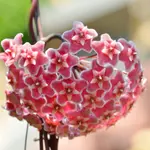
The wax plant is a succulent with dark green, glossy leaves and clusters of white, waxy flowers. The plant is commonly grown as a houseplant and is known for its easy care and drought tolerance.
Wedelia
Wedelia is a genus of flowering plants in the sunflower family. They are native to tropical and subtropical regions of the Americas, Africa, and Asia. The genus name honors French botanist Jean–Jacques Weddell.
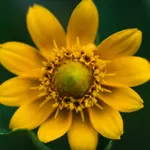
Plants in the genus Wedelia are annual or perennial herbs, shrubs, or small trees. The leaves are alternately arranged and have toothed or lobed margins. The flower heads are borne singly or in clusters. They have ray florets that are yellow, orange, or red, and disk florets that are yellow, orange, or brown. The fruit is achene.
Weigela
The Weigela is a deciduous shrub that is native to China. It is a member of the Caprifoliaceae family and grows to be about 3–5 feet tall. The Weigela has dark green leaves and produces pink or white flowers in the spring.
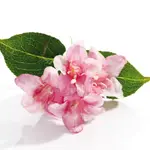
Weigela is a genus of about 12 species in the family Caprifoliaceae, native to temperate Asia. They are deciduous shrubs growing to 1–3 m tall, with simple ovate leaves and terminal clusters of 2-5 funnel-shaped flowers, the latter mostly in shades of pink, but also white or yellow in some species. The flowers are pollinated by bees. The fruit is a dry capsule containing numerous small seeds.
Whirling Butterflies
Whirling Butterflies flowers are native to the tropical and subtropical regions of the Americas.

The flowers are typically yellow or orange, and have five petals. The flowers are pollinated by bees, and the plants produce seeds that are dispersed by the wind.
Wild Rose
The wild rose flower is a beautiful, fragrant flower that grows in the wild.
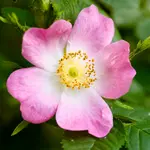
It is often used in bouquets and arrangements because of its lovely fragrance. A wild rose is a rose that grows spontaneously in the wild, rather than being cultivated by humans.
Wild Violet
The wild violet flower is a species of violet that is native to North America.
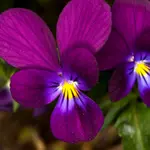
It is a perennial herb that grows in woods and fields. The wild violet has purple or blue flowers that bloom in the spring.
Windflower
Windflower flowers are usually white or pale blue in color. They have a bell–shaped structure and are found in clusters. The flowers are about 2–3 inches in diameter.
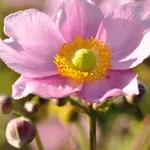
Each flower has five petals that are fused at the base. The flowers have a sweet fragrance that attracts bees and other pollinators. The blooming period of windflower flowers is from late spring to early summer.
Winter Aconite
The winter aconite flower is a beautiful yellow flower that blooms in the winter. This flower is native to Europe and Asia, and it is often used as a decoration in gardens.
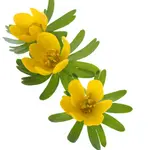
The winter aconite flower has a short stem and a large, round flower head. The petals of the flower are yellow and have a slightly fringed edge. The center of the flower is yellow and has a small, black dot.
Winterberry
The winterberry flower is a small, delicate flower that blooms in the winter months.
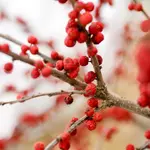
It is often found in wooded areas and is known for its ability to withstand cold temperatures.
Winter Jasmine
Winter jasmine is a species of jasmine native to China. It is a member of the olive family, Oleaceae. The plant is an evergreen vine or shrub growing to 3–6 m (10–20 ft) tall.
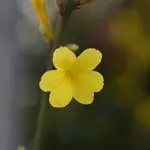
The leaves are opposite, simple oval, 1–3 cm (1⁄2–1 1⁄4 in) long, and 1 cm (1⁄2 in) broad. The flowers are produced in axillary clusters of three to twelve, each flower white with five petals, 2 cm (3⁄4 in) diameter, and very fragrant. The fruit is a blackberry 5–8 mm in diameter.
Wishbone Flower
The Wishbone Flower is a herbaceous perennial. The leaves are opposite, ovate to lanceolate, and 2–8 cm long. The flowers are borne in axillary clusters and are white or pale pink.
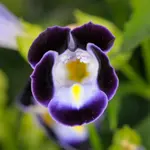
The calyx lobes are ovate to oblong and 2–5 mm long. The corolla is salverform, 8–15 mm long and has five lobes. The stamens are inserted at the base of the corolla and are unequal in length. The ovary is superior and has two locules. The fruit is a schizocarp that is 2–8 mm long.